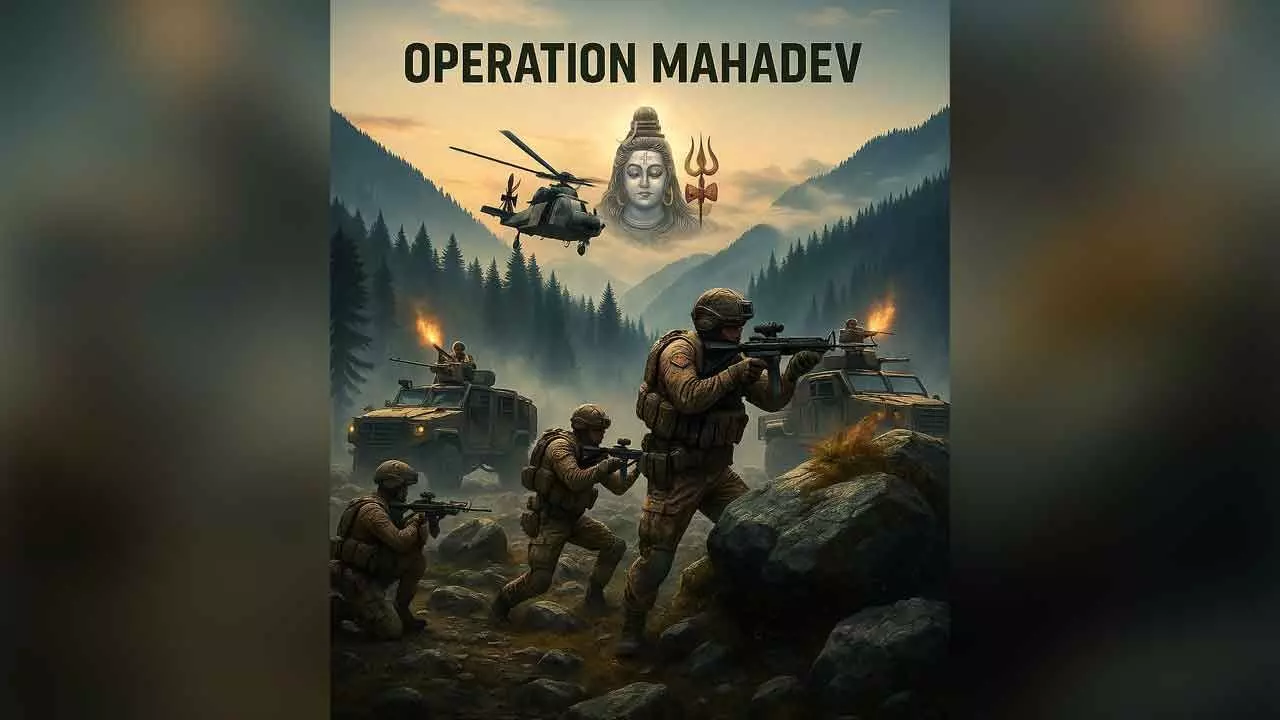India’s zero-tolerance triumph: The success of Mahadev and Black Forest
Their aim was to take decisive action against scourges like terrorism and Naxalism
India’s zero-tolerance triumph: The success of Mahadev and Black Forest

Operation Mahadev broke the backbone of anti-national forces, not just through military action but also as a psychological blow. Organisations like Lashkar, symbols of Pakistan-sponsored terrorism, now lack the courage to operate near India’s borders. Where they once infiltrated and spilled innocent blood, they are now forced to hide
The distance between Jammu & Kashmir and Chhattisgarh is vast. Yet, over the past few months, intensive operations with a common purpose were conducted in both states against the nation’s enemies. Their aim was to take decisive action against scourges like terrorism and Naxalism. These operations sent a clear message: the country is united in crushing cross-border terrorists and internal insurgents.
Operation Mahadev proved to be a milestone in Jammu & Kashmir, serving as a vivid testament to India’s zero-tolerance policy against terrorism. Launched in July 2025, this operation was specifically designed to target the masterminds behind the Pahalgam attack. The attack, which targeted innocent tourists and civilians, had shaken the entire nation.
However, the combined efforts of the Indian Army, CRPF, and Jammu & Kashmir Police neutralised three top Pakistani Lashkar-e-Taiba terrorists within just 14 days. Among them was Hashim Musa Suleman Shah, a key figure infiltrating from Pakistan to disrupt India’s peace. The operation’s success lay in precise intelligence and technical signal tracking, which matched signals used during the Pahalgam attack. Pakistani identity cards, biometrics, and even items like chocolates were recovered from the terrorists, exposing their foreign conspiracy.
This operation broke the backbone of anti-national forces, not just through military action but also as a psychological blow. Organisations like Lashkar, symbols of Pakistan-sponsored terrorism, now lack the courage to operate near India’s borders. Where they once infiltrated and spilled innocent blood, they are now forced to hide.
Operation Mahadev sent a clear message that India’s security agencies are capable of crushing any conspiracy. As a result, terrorist incidents in Jammu & Kashmir have decreased, and confidence in sectors like tourism has been restored.
This success not only reassures the local population of their safety but also showcases India’s strong resolve on the international stage. Home Minister Amit Shah described it as part of the “Sindoor Strike,” warning that those who threaten Indian lives will face devastating consequences.
Now, let’s talk about Operation Black Forest, one of India’s greatest successes against Naxalism. Launched in May 2025 along the Chhattisgarh-Telangana border, this 24-day operation targeted Naxal strongholds like the Kareguttalu hills. Naxalism, which has hindered development in tribal areas for decades, is now on its last legs.
Security forces neutralised 31 notorious Maoists, including top leader Basavaraju, who carried a bounty of Rs1.72 crore. Additionally, 214 Naxal hideouts and bunkers were destroyed, and 450 IEDs, 818 BGL shells, and 899 Codex bundles were seized. This operation was not only a military success but also dismantled the Naxal “Unified Command.”
This campaign against anti-national forces is significant because Naxals have long spread “Red Terror.” They destroyed development projects, targeted innocent villagers, and tried to weaken the government. But Operation Black Forest broke their backbone. The deaths of over 27 insurgents, including top commanders, fragmented the Naxal network.
The tricolor now flies over the Kareguttalu hills, transforming a Maoist stronghold into a symbol of peace. The CRPF Director General called it “the beginning of the end of Naxalism,” a statement that rings true. These results have not only strengthened internal security but also opened the door to development in tribal communities. Schools, hospitals, and roads can now be built without fear, marking the Naxals’ greatest defeat.
Undoubtedly, the success of both operations owes much to the visionary leadership of Prime Minister Narendra Modi, Home Minister Amit Shah, and the bravery of our security forces. Modi’s vision is of a “New India” where security is paramount. He stated in Parliament, “We will hunt down terrorists anywhere,” a resolve reflected in these successes.
Home Minister Shah ensured the operations’ timeliness and coordination. After Operation Mahadev, he honored the soldiers, calling it a “clear message to the architects of terror.” Similarly, he described Operation Black Forest’s 21-day success as “the tricolor’s victory on Red Hill.”
The use of drones and signal intelligence in Operation Mahadev, and the coordinated ground operations in Black Forest, are fruits of their vision. These efforts not only weakened anti-national forces but also bolstered India’s global image.
The broader impact of these operations cannot be ignored. Operation Mahadev accelerated the peace process in Jammu & Kashmir, where development has surged since the abrogation of Article 370. Tourism, investment, and local employment have increased.
Meanwhile, Black Forest liberated Naxal-affected areas in states like Chhattisgarh, enabling government schemes to reach these regions without hindrance. Anti-national forces that once stalled development through their conspiracies have now lost their relevance. These operations prove that India is no longer weak but is emerging as a superpower.
Indeed, Operation Mahadev and Black Forest have reduced anti-national forces to dust. Challenges like terrorism and Naxalism are becoming history. This victory is not only a tribute to the bravery of our security forces but also a symbol of the nation’s unity.
Such operations will continue in the future, ensuring India shines as a secure and prosperous nation. However, the country must always remain prepared to defeat enemies, both within and beyond its borders.
(The author is Delhi-based senior journalist and writer. He is author of Gandhi's Delhi)

